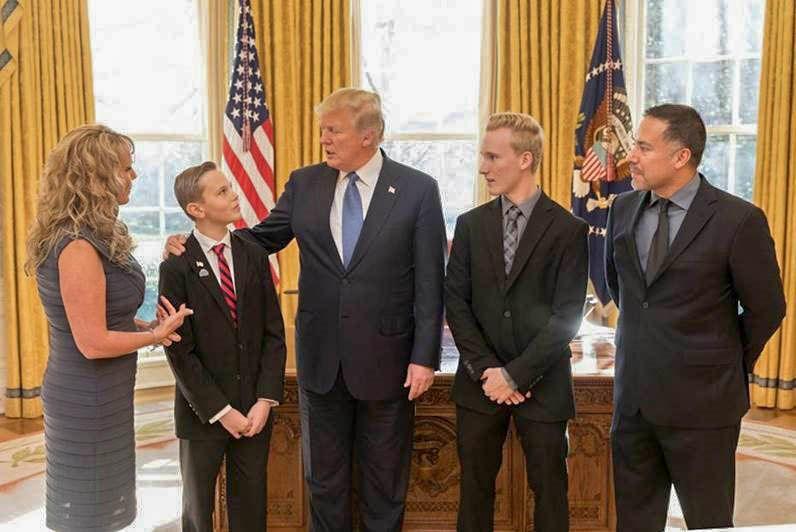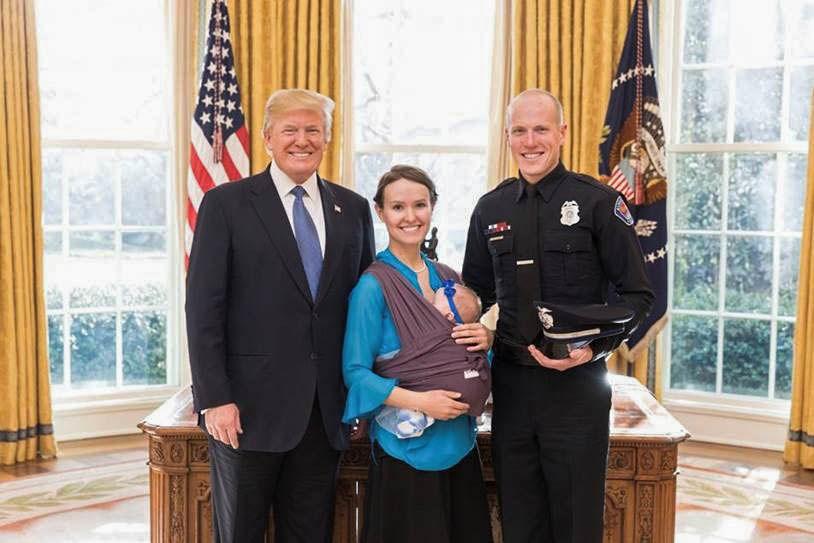President Donald Trump delivered his first State of the Union address Tuesday night, laying out his legislative agenda and ideas for the upcoming year. Kirby Goidel, professor in the Department of Communication and director of Public Policy Research Institute at Texas A&M, and congressional members shared their thoughts on the night’s address.
According to Goidel, people must understand the context and the president’s intentions in order to fully evaluate a State of the Union address. He said one of the most notable considerations to take into account is the fact that Trump has a low approval rating, despite the fact that the economy is doing well. In addition to this, the midterm elections are approaching, which will lead to a reduction in power as the Republican party loses seats, giving Trump a reason to make strides toward bipartisan collaboration, according to Goidel.
“With that sort of backdrop, I think what he did with his speech was first, really emphasized the economy and took credit for it,” Goidel said. “A lot of his policy then was aimed at addressing some of the larger issues, including immigration and infrastructure, where there really is possibility for Republicans and Democrats to work together and achieve some meaningful policy initiatives.”
The nation’s success was highlighted in the State of the Union address, according to an official comment by Republican Bill Flores, United States Representative for Texas’s 17th congressional district.
“President Trump articulated how our nation is growing stronger and more secure with unlimited potential for greater opportunity for hardworking Americans,” Flores said. “Lower taxes through bold tax reform, relief from regulatory headwinds and promoting energy dominance policies have set the stage for vibrant economic growth.”
However, Massachusetts Democratic representative Joe Kennedy said Trump’s economic growth is no means for celebration.
“We see an economy that makes stocks soar, investor portfolios bulge and corporate profits climb, but fails to give workers their fair share of the reward,” Kennedy said.
Trump displayed professionalism that is not always apparent in his speeches, which Goidel said is good but not necessarily worthy of praise.
“[Trump] didn’t go off the rails very often, he didn’t ad-lib a whole lot and so it looked more like what we would expect from a president and presidential behavior, so I think he’s getting some good marks for that,” Goidel said. “I’m not sure those are entirely deserved, I mean the expectation is that when you watch Trump talk anything can happen, so when he stays to script it’s sort of like ‘Wow. He did what he was supposed to do.’”
The address focused heavily on the importance of infrastructure, a necessary item on the agenda according to Flores.
“Working to improve our nation’s infrastructure will help grow economic productivity, opportunity and national security,” Flores said. “I look forward to continuing to work with the president and my colleagues in Congress to improve liberty, opportunity and security for all Americans.”
While Trump’s neglect to mention the country’s deficit was surprising, Goidel said Trump’s speech ultimately fulfilled the goals he set out to accomplish, despite some possible disagreement from the Republican party.
“Overall, I thought he did pretty much what he set out to do,” Goidel said. “The bipartisanship is trickier than taking credit for the economy. There was the one point where he mentioned paid family leave and Paul Ryan didn’t really clap, didn’t really stand up. So there are some issues [Trump] is willing to reach out to Democrats, but it’s not clear that his party is willing to create bipartisan compromise.”
Big talk about bipartisanship
January 31, 2018
Photo by Creative Commons
President Trump honored Preston Sharp (second from left) during the State of the Union Address for his work with the Flag and Flower Challenge.
0
Donate to The Battalion
Your donation will support the student journalists of Texas A&M University - College Station. Your contribution will allow us to purchase equipment and cover our annual website hosting costs.
More to Discover










